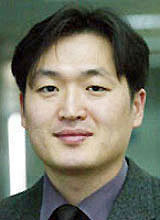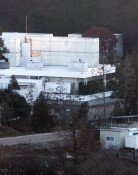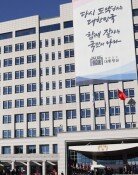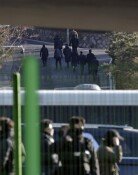Half-baked and lopsided fairness
Half-baked and lopsided fairness
Posted January. 06, 2020 07:44,
Updated January. 06, 2020 07:44

The Bank of Korea, which is often referred to as a workplace even envied by god, has adopted blind recruitment. Applicants are hired based on their scores of written exams while their identification details, such as the names of colleges, are not included in resumes in order to provide fair opportunities to all. However, the Bank of Korea said economics majors from Seoul National University now account for even a bigger share among successful applicants as the bank’s written exams are more favorable to those who studied economics. The bank requires a variety of talent – those who excel at human resources management and general affairs, external relations or organizational management – as all organizations do. The current recruitment method not only limits the employer’s right to choose whom to hire but also the chance of applicants – except a selective group of people – to be hired. The method might have been put forward with fairness in mind, but the results are not.
The blind recruitment process was introduced to public institutions in June 2017, right after the inauguration of President Moon Jae-in. Eight major public institutions in the financial sector saw a decrease in the share of graduates from Seoul National University, Korea University, and Yonsei University from 28.1 percent to 22.1 percent. However, such share either increased to around 50 percent or remained unchanged for five financial public institutions that are located in Seoul and therefore preferred by job applicants – Financial Supervisory Service, Korea Development Bank, Export-Import Bank of Korea, Industrial Bank of Korea, and Korea Deposit Insurance Corporation – except the Industrial Bank of Korea. This means that the four most popular financial public institutions among job applicants – Bank of Korea, Financial Supervisory Service, Korea Development Bank, and Export-Import Bank of Korea – now hire more graduates from the top three universities in South Korea.
To build trust in fairness, the means of a fair economy should be brought into question as well. The Fund Management Committee of the National Pension Service (NPS) voted on the guidelines to exercise shareholders’ rights to participate in management, which included that the NPS may ask the dismissal of companies’ directors. Such a policy enables public capital to control private capital. It is only reasonable to exercise shareholders’ rights in the case that corporate values are undermined due to the deviant behaviors of capital. The question is, however, whether the NPS that has governance and decision-making structure completely exposed to the pressure from the government can play the roles of a fair judge.
The Executive Fund Director and Chief Investment Officer leading the National Pension Service Investment Management (NPSIM) managing approximately 700 trillion won – more than the annual budget of South Korea – is hired at the discretion of the Minister of Health and Welfare. The government and political circles have been ignoring the continued claim that personnel verification is more necessary for the director of the NPSIM than the minister. The NPS’s chief director, which is appointed by a president, has become a position of arbitrary reward under the current administration. Chief director Kim Sung-ju, who served in Jeonju during the 19th session of the National Assembly, tendered his resignation last week to run for the April 15 general elections. The NPS is located in Jeonju.
As the government was faced with the challenge of fairness due to the joint ice hockey team of South Korea and North Korea at the PyeongChang Winter Olympics, standards to determine fairness versus unfairness are bound to be plural. In particular, fairness in markets, in which a number of players participate in various forms, can be often difficult to be determined solely based on good faith and political will. Results may be even more unfair as price control measures adopted by socialist economies were. Half-baked fairness that only pretends to be fair and lopsided one that forces fairness standards to the other side, needless to say, are apparent examples.
koh@donga.com







